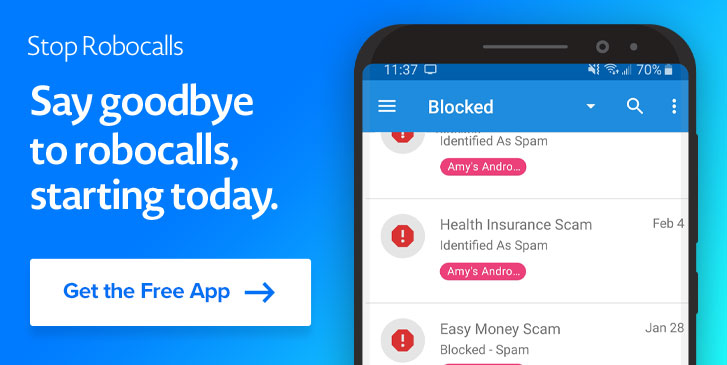Monday morning quarterback. Backseat driver. Whatever moniker you prefer, we live in a culture surrounded by scrutiny. Do the wrong thing on social media, and you’re quickly be overrun with disapproving comments about what you should have done. Pro sports provides a spectacular analogy. With the benefit of ultra-high-definition super-slow-motion replays, multiple angles, and former referees providing analysis in real time, it’s easy for us to question decisions players made in a split second. What was he thinking?!
Similarly, it’s easy to wish away robocalls from the comfort of our couch. “The FCC should stop them.” “Just arrest all the perpetrators.” “Do it!” Well, like many things in life, easier said than done.
In this article, we cover:
- What is STIR/SHAKEN technology standard.
- The power of call spoofing.
- YouMail robocall blocker origination prevention.
The FCC has been working with the telecom industry since 2014 to find a way to stop robocalls and phone number spoofing. The result is a technology standard called Secure Telephony Identity Revisited (STIR) and Secure Handling of Asserted information using toKENS (SHAKEN). In a nutshell, STIR/SHAKEN uses digital certificates and encryption to secure phone calls. The call recipient can then verify the caller is who he or she claims, virtually eliminating number spoofing.
As a reminder, spoofing is when a fake caller ID is used to deceive the recipient into believing a call is from someone else. These calls may lead you to let your guard down since they appear to be innocent local calls from your area code. STIR/SHAKEN aims to neutralize this fundamental tool robocaller scammers keep in their bag of tricks.
The FCC has set a caller ID authentication implementation deadline of June 30, 2021. Interestingly, the commission recently issued documentation that lays out extensions on this deadline if certain criteria are met. Specifically, voice service providers must “implement an appropriate robocall mitigation program to prevent unlawful robocalls” originating from their network.
It’s important to note that the FCC’s guidance is concerned with origination over blocking.
If you think about using an app or service to block robocalls, you’d expect it to identify malicious robocalls and prevent them from ringing your line or giving you a warning that the call is likely one you want to avoid. However, this in itself does nothing to stop the problem at the source, it only regulates what you allow yourself to be exposed to. Preventing a robocall at origination is the real magic that gets your number off the list to prevent further disturbance.
So, in absence of full STIR/SHAKEN compliance, which is a complicated technical hurdle over multiple networks, services, and countries, the FCC sees origination measures as the most acceptable substitute. It so happens, we have just the thing.
YouMail Robocall Origination Prevention
Want to know what calls leaving a carrier network are attacking Americans? Well, you’re in the right place, because there’s nobody better than YouMail to answer this question.

Our Robocall Index extrapolates data collected from tens of millions of calls made each month to YouMail users. In September 2020 alone, 3.8 billion robocalls were placed nationwide, and the numbers have only been rising since April. We protect more than 350 million phone numbers and have answered well north of 10 billion calls to date.
Even once STIR/SHAKEN reaches general adoption, don’t expect an end to malicious robocalls. The bad guys will adapt, they always do. But, along with solid origination prevention services like YouMail in place, we will be one step closer to living the robocall-free dream. Perhaps we will be one step closer, too, in eradicating all those pesky Monday morning quarterbacks from our lives.
But in the meantime, how confident are you that your network isn’t now harboring the worst offenders in the USA? We can give you one glimmer of hope; just ask us and we can let you know.





